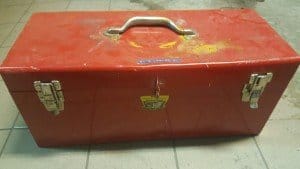Quoting African proverbs has not been a habit of mine, but whenever I come across something that makes me sit up and think, you know I will soon be writing about it here.
I don’t know where or when this first came across my radar screen, but that’s not important. The key is that it’s worth thinking about and sharing, and as usual I will add my views on the family business angles that I think are worth keeping in mind.
Without further ado, here is the proverb:
If you want to go fast, go alone.
If you want to far, go together.
What jumps out at me is that before you “go”, you need to think about your priorities so that you plan your “trip” the right way.
Family businesses, almost by definition, are about “together” and “far”, not so much about “alone” and “fast”.
But here is where things get interesting. Many, if not most, successful businesses were started by one motivated, hard-working, driven person, whose determination was the key to creating a business that was then capable of bringing in others, often including many family members.
Over time, of course, that founder gets older, and plans need to be made to transition the business to the next generation.
Not only are the skills required to continue the business very different from the ones needed to create it, technology changes over those decades often mean that the business needs to redefine itself to continue being successful in the future.
Now if that founder is lucky enough to have just one child, AND that child has exactly the right attributes necessary to keep the business in a sweet spot for another generation, great. But how realistic is that?
More often, there is not one child, but several children, and even if they all have valuable skills to contribute to the success of the company, what are the chances that they will all be in agreement about what to do, who does what, and of course the biggie, who gets to decide?
So here we are. We may have decided WHAT we want, i.e., we want to go together. We also know why, because we have decided that we want to go far. Okay, on the surface, most people are still nodding in agreement. But this is where it gets tricky.
HOW do we do it?
The devil, as always, is in the details. And the details around the “how” have derailed many a well-meaning family’s plans. So, what do we do?
Let’s go back to Africa, where our proverb came from. If we were planning a long trek through the desert or jungle as a family, what are some of the things that we would need to do before leaving?
And just for fun and some added realism, the parents aren’t coming along on this trip, it’ll be just the siblings. We need to be sure that they can survive as a group without their parents, because, well you know the part about parents usually dying before their kids, right?
If those siblings came to me for advice before their trip, I would recommend they figure out a few things before setting out. Among the most important questions are these:
- How are we going to make decisions together?
- How are we going to communicate effectively?
- How are we going to solve problems together?
Notice the word “together” appears in two of those, and is implied in the other.
Now Mom and Dad could sit them down and dictate the answers to those questions, and that may be helpful. Or it may not be.
Ideally the answers come from the sibling group. Do I mean that the oldest child will dictate them? Um, no, probably not much better than the answers coming from the parents, maybe worse.
These details should ideally be worked on together, as a group. What we are looking for is co-developing them, and building consensus along the way.
Can they do this by themselves? Maybe, but likely not.
How about bringing in a skilled outside facilitator?
Great idea!
If you do that, your odds go up astronomically.



